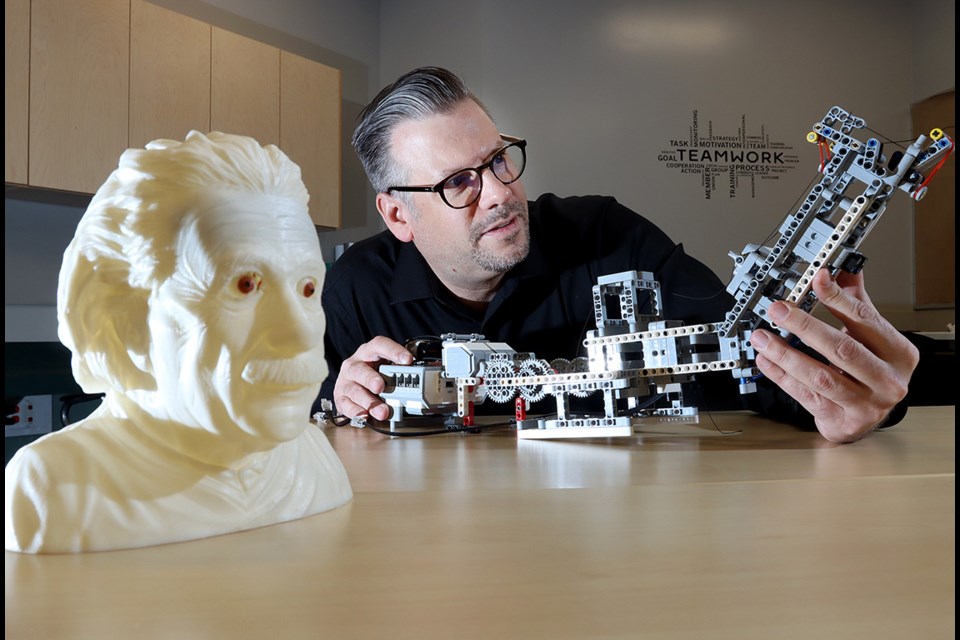A Port Coquitlam physics and technology teacher is looking forward to Feb. 24 when he will be handed an award for teaching excellence by the Canadian Association of Physicists (CAP).
On that day, hundreds of Edward Csuka's peers will be on hand during a professional development day to witness the honour for the tenured Terry Fox Secondary teacher.
"I was blown away," Csuka told the Tri-City News about the letters of support from his fellow teachers and administrators who helped to nominate him.
Csuka is humble when it comes to this award for teaching excellence, but his enthusiasm for science and technology is evident.
"As a teacher, you don’t stop and look back at your impact."
The CAP award recognizes Csuka for his leadership in organizing the Power of Ideas Exhibit, a kind of science fair on steroids that attracted more than 1,000 people in 2017.
He's also taken a leadership role in supporting a new STEAM program at the school, where students take a blend of courses in science, technology, engineering technology, arts and math.
They do projects to enhance their learning, working together to understand the building blocks of the universe and how to turn that learning into practical science.
For Csuka, learning about the world around him and inspiring students to expand their knowledge has been his aim since reading Stephen Hawking's A Brief History of Time when he was in university, studying biology.
"It took complicated physics and explained it in a way that a young person like myself could understand."
Kids 'grow' with STEAM courses
Csuka has turned his own motivation into programs that support students at Terry Fox.
For example, he runs the school's robotics club, science fairs, and an innovation society, where students can use 3D printers and other tools to bring their ideas to life.
But Csuka is also a big fan of life-long learning and has plans to go back to school himself — he plans to do a PhD during summers to study the impact of the STEAM program at Fox.
The program, which started with Grade 9 students and will be enrolling Grade 11 students in September, allows the students to work together on projects, combining several courses.
Recently, the students raced "boats" at Hyde Creek Recreation Centre.
It was fun for the students to research, design, build and race the watercraft but also a way to combine course material from all five STEAM courses, Csuka said.
"I can see these kids really growing," he added.
Wants to visit CERN particle collider
"In a regular classroom, you get shotgunned into all these classes, but in STEAM you get to know each other over an extended length of time."
The result is an increased maturity level, he says, as well as growth and confidence among students.
"I want to study this program to see the effects that are always happening."
Csuka is happy to accept the CAP award, but he faces one more challenge — convincing judges that he should be the one Canadian teacher to go to Switzerland.
He wants to visit the European Organization for Nuclear Research, known as CERN, which houses the world's largest atomic particle collider in the world.
"As a physics teacher, I’ve followed the building of this thing, It’s the biggest experiment humans have conducted by far. This is where nature is talking to us, where new physics is happening."
Csuka has written a proposal for attending the research centre and hopes he is chosen; if not, he is happy to visit one of a number of other science facilities on offer through the CAP award.
"It's a great honour," Csuka said.





